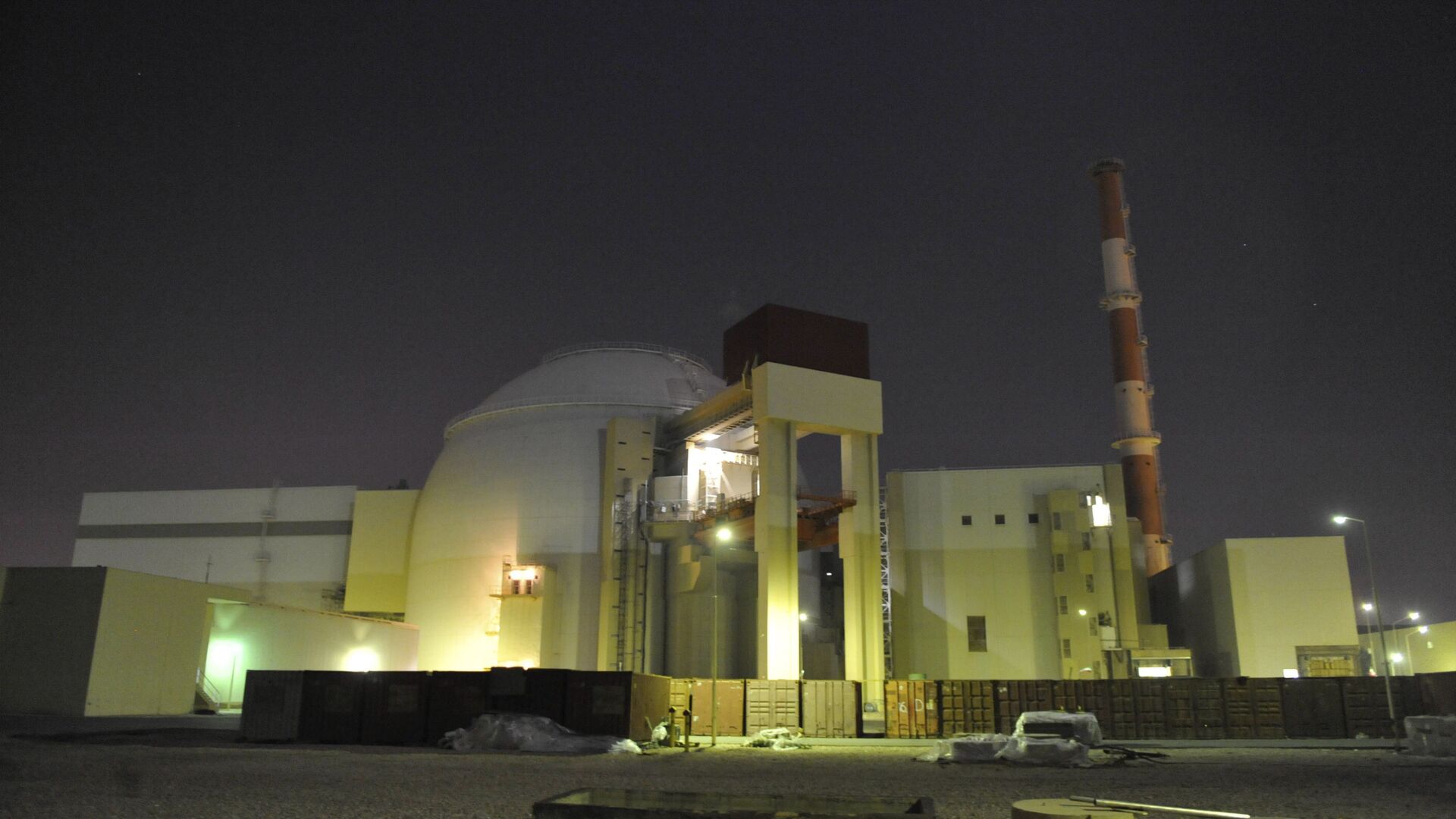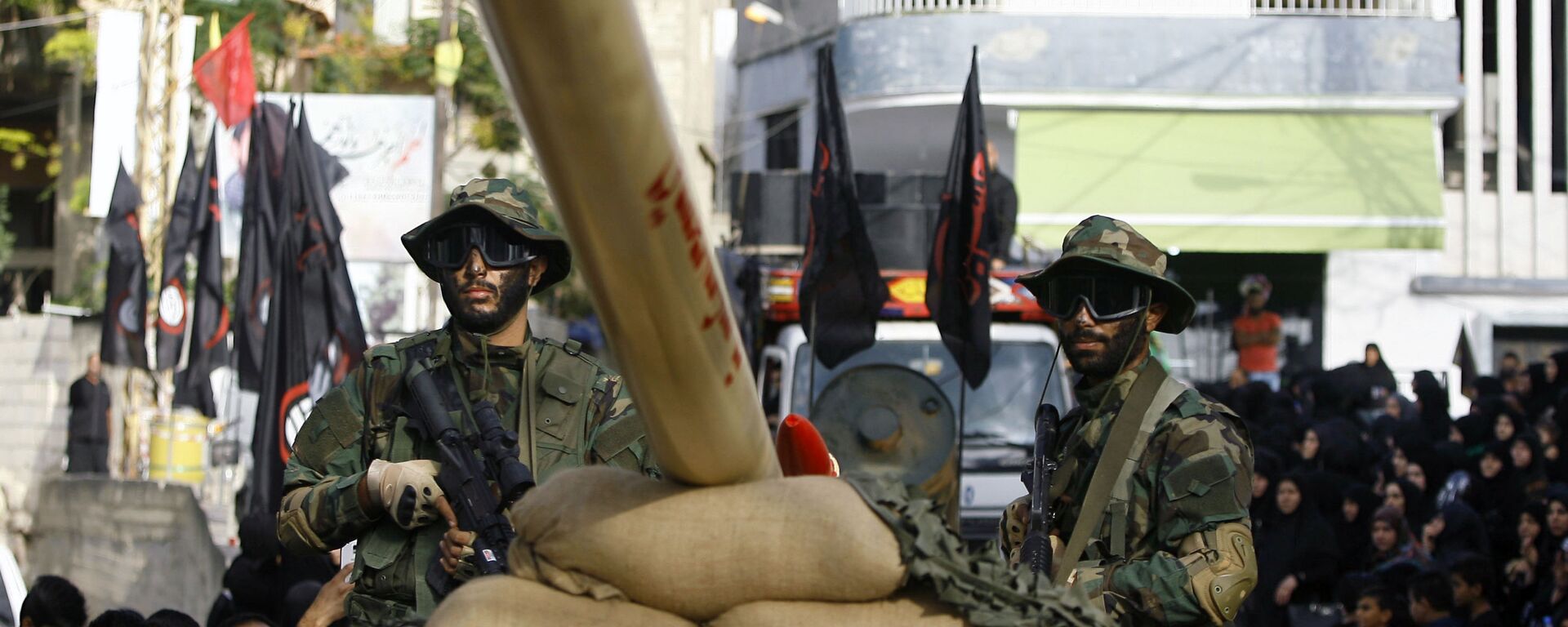https://sputnikglobe.com/20220104/israeli-ex-official-points-to-mammoth-frightening-tool-iran-has-to-answer-attack-on-nuclear-sites-1092017791.html
Israeli Ex-Official Points to Iran's ‘Mammoth, Frightening’ Tool to Answer Attacks on Nuclear Sites
Israeli Ex-Official Points to Iran's ‘Mammoth, Frightening’ Tool to Answer Attacks on Nuclear Sites
Sputnik International
Israel has spent years threatening to target Iran’s nuclear facilities should the Islamic Republic attempt to create a nuclear bomb. Tehran has stressed... 04.01.2022, Sputnik International
2022-01-04T16:42+0000
2022-01-04T16:42+0000
2023-01-15T17:25+0000
iran
consequences
strike
israel
https://cdn1.img.sputnikglobe.com/img/106453/76/1064537643_0:158:3077:1889_1920x0_80_0_0_31a830443c92431e2c1fc81ccb7c4dc4.jpg
An Israeli military attack on Iran’s nuclear energy infrastructure should be considered a “truly last resort option”, and one which would cause immense damage to Israel if it were carried out, Chuck Freilich, a former deputy national security adviser to the Israeli government, has warned.In a podcast interview with Haaretz on Tuesday, the former security official suggested that technically, Iran today is already “just weeks away from having enough fissile material” to build its first nuclear weapon, and within half a year could have enough highly enriched uranium for a small arsenal of several bombs.“But that’s just the uranium component - a critical one, but just one of the two. The other is weaponisation – the ability to take a warhead and miniaturise it, put it on a missile and make a warhead that can withstand the heat and stresses of reentry into the atmosphere. They’re not there yet,” Freilich said.The former deputy national security adviser, who now works as a senior fellow at Harvard’s Kennedy School of Government, admitted that despite more than a decade of claims by Israeli officials about an “imminent” Iranian breakthrough to nuclear weapons status, Iran has not actually demonstrated that it is actively pursuing such weapons.‘Severe Ramifications’Freilich warned that any Israeli attack on Iran’s nuclear infrastructure could at best only slow down, by perhaps two or three years at most, any attempt by the Islamic Republic to build the bomb.Even the United States, with all its capabilities and military superpower status, can’t destroy Iran’s nuclear programme completely, “because Iran knows how to reconstitute”, he said.‘Mammoth and Truly Frightening Arsenal’If Israel did attack, it could expect a “strong Iranian response” both directly and from Tehran’s regional allies, Freilich said.Freilich also suggested that Israel alone would face limitations to what it could do if the situation escalated into a regional conflict, given that the military would be forced to operate “at the outer limits of IDF capabilities.”Providing an example to get at the kind of damage he was talking about, Freilich recalled the 2016 Tel Aviv parking garage collapse, which paralysed traffic throughout central Israel for an entire day.At the same time, Freilich believes that Tehran will do everything it could to limit any response to aggression to Israel itself, allowing the US to distance itself from the conflict and earning Iran international support.“Despite what people think – the Iranians may be extremists but they’re also very sophisticated, they’re very carefully calculating actors, and I don’t see why they would have any interest in [attacking the US] – just the opposite: their interest would be to focus the response to Israel. They’re better prepared for that, that’s what they build their capabilities for, and many people in the Muslim World and in the international community will even stand up and applaud them for responding to so-called Israeli aggression,” the former official said.Back to the JCPOAFreilich suggested that Israel’s best option would be to accept US efforts to rejoin the Joint Comprehensive Plan of Action (JCPOA) nuclear deal, calling it “the best of the bad options” for Tel Aviv. It “would be nice” for the agreement to include things besides nuclear enrichment, he said, such as Iran’s missile capabilities or its regional policy.“But I think the harsh reality is that’s not gonna happen, and holding out for the perfect [option] is going to be the enemy here of the good, even the acceptable. I think we’re gonna have to back off those demands, I think it’s going to be very hard to get back to any agreement,” he said.Back and Forth ThreatsIsrael has spent years threatening to wipe out Iran’s nuclear programme, and has been accused of carrying out numerous sabotage attacks against the country’s nuclear facilities, and assassinating half-a-dozen of the Islamic Republic’s nuclear scientists. In October, the Israeli government carved out a special $1.5 billion budget specially for aircraft, drones and special munitions to attack Iranian nuclear facilities.Tehran has warned that any Israeli or American military attack on its soil would be met with a fiery retaliation. Last month, Iranian missiles and drones destroyed a mock-up of a facility resembling Israel’s main nuclear research centre during massive drills. Over the past three decades, the Islamic Republic has developed and fielded thousands of domestically made short, medium and long-range ballistic and cruise missiles, as well as drones, with many of these weapons theoretically capable of reaching Israeli soil.Iran’s leaders have said repeatedly that they have no intention of pursuing nuclear weapons, considering nukes and weapons of mass destruction to be contrary to Islamic law and that their conventional missile arsenal is a sufficient deterrent.Iran, the United States, Russia, China, France, Britain, Germany and the European Union have been negotiating the restoration of the JCPOA at talks in Vienna. Iran wants the US to lift its crushing sanctions, and has rejected any attempts to modify the existing deal. Washington suggests Tehran must first return to its original commitments under the agreement on uranium enrichment and stockpiling.
https://sputnikglobe.com/20220104/israels-mossad-bombed-german-swiss-firms-in-1980s-aiding-pakistans-nuclear-program-paper-claims--1092005511.html
https://sputnikglobe.com/20210607/hezbollah-warns-israel-with-hellfire-if-it-strikes-as-gantz-threatens-to-make-lebanon-tremble-1083093142.html
https://sputnikglobe.com/20220101/israeli-fm-vows-to-counter-iranian-threat-says-israel-has-capabilities-some-cannot-even-imagine-1091954027.html
https://sputnikglobe.com/20211221/israel-unable-to-strike-iran-without-green-light-from-us-tehrans-top-commander-says-1091675606.html
https://sputnikglobe.com/20211226/clip-shows-iranian-missile-attack-on-target-that-looks-suspiciously-similar-to-israeli-nuclear-1091817000.html
https://sputnikglobe.com/20211230/head-of-iranian-delegation-says-progress-made-in-jcpoa-talks-in-vienna-1091923420.html
iran
israel
Sputnik International
feedback@sputniknews.com
+74956456601
MIA „Rossiya Segodnya“
2022
News
en_EN
Sputnik International
feedback@sputniknews.com
+74956456601
MIA „Rossiya Segodnya“
Sputnik International
feedback@sputniknews.com
+74956456601
MIA „Rossiya Segodnya“
iran, consequences, strike, israel
iran, consequences, strike, israel
Israeli Ex-Official Points to Iran's ‘Mammoth, Frightening’ Tool to Answer Attacks on Nuclear Sites
16:42 GMT 04.01.2022 (Updated: 17:25 GMT 15.01.2023) Israel has spent years threatening to target Iran’s nuclear facilities should the Islamic Republic attempt to create a nuclear bomb. Tehran has stressed repeatedly that it has no plans to do so, and has warned Tel Aviv that the Jewish State would have to spend “thousands of billions of dollars” to rebuild if it dares attack.
An Israeli military attack on Iran’s nuclear energy infrastructure should be considered a “truly last resort option”, and one which would cause immense damage to Israel if it were carried out, Chuck Freilich, a former deputy national security adviser to the Israeli government, has warned.
In a
podcast interview with Haaretz on Tuesday, the former security official suggested that technically, Iran today is already “just weeks away from having enough fissile material” to build its first nuclear weapon, and within half a year could have enough highly enriched uranium for a small arsenal of several bombs.
“But that’s just the uranium component - a critical one, but just one of the two. The other is weaponisation – the ability to take a warhead and miniaturise it, put it on a missile and make a warhead that can withstand the heat and stresses of reentry into the atmosphere. They’re not there yet,” Freilich said.
The former deputy national security adviser, who now works as a senior fellow at Harvard’s Kennedy School of Government, admitted that despite more than a decade of claims by Israeli officials about an “imminent” Iranian breakthrough to nuclear weapons status, Iran has not actually demonstrated that it is actively pursuing such weapons.
“The truth is that those estimates [on Iran developing the necessary capabilities] have been there for at least the last 15 years, maybe even more. So the Iranians have clearly not made the decision, knowingly not made the decision to cross that critical threshold, I think because they realise that that would be a bridge too far, that that might invite Israeli or American military action,” Freilich said.
Freilich warned that any Israeli attack on Iran’s nuclear infrastructure could at best only slow down, by perhaps two or three years at most, any attempt by the Islamic Republic to build the bomb.
“I think both we and the United States missed the opportunity to destroy the programme a good decade ago, maybe more, because Iran crossed the technological threshold at which point it knows how to build the capabilities. So even if you destroy them down to ashes, it can rebuild it,” he said.
Even the United States, with all its capabilities and military superpower status, can’t destroy Iran’s nuclear programme completely, “because Iran knows how to reconstitute”, he said.
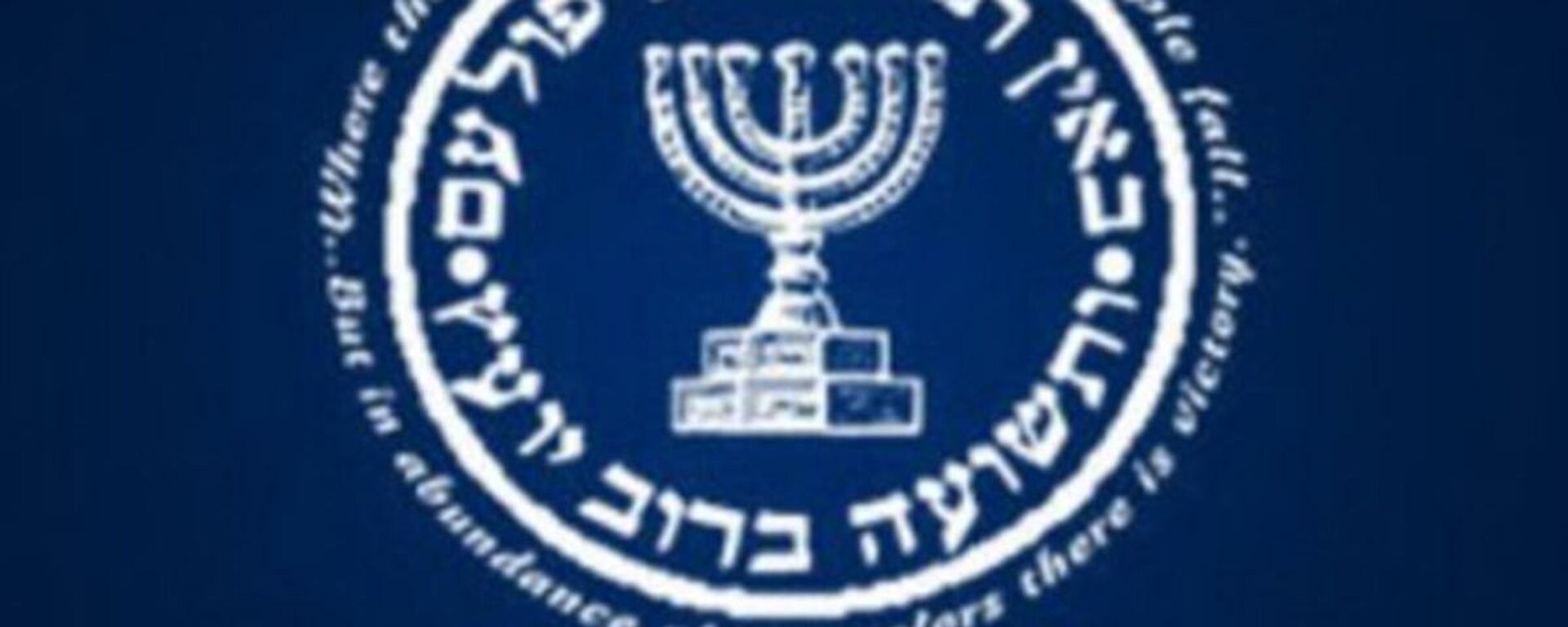
4 January 2022, 01:10 GMT
‘Mammoth and Truly Frightening Arsenal’
If Israel did attack, it could expect a “strong Iranian response” both directly and from Tehran’s regional allies, Freilich said.
“First and foremost by means of Hezbollah: they built up Hezbollah, the arsenal that they have has maybe something like 150,000 rockets, it is a mammoth and truly frightening arsenal built for the potential scenario of either Israel or the US attacking its nuclear programme … They can hit us massively from Lebanon via Hezbollah. They’ve begun building up their own presence in Syria and a Hezbollah presence in Syria; they’ve begun dispersing ballistic missiles in Iraq, Yemen, maybe elsewhere. And they now have their own ballistic missile, cruise missile and drone arsenal to hit us with. So I think Iran will respond against Israel very, very severely,” the former official warned.
Freilich also suggested that Israel alone would face limitations to what it could do if the situation escalated into a regional conflict, given that the military would be forced to operate “at the outer limits of IDF capabilities.”
“We will hit them hard, I would imagine that we will hit targets affiliated with the regime, and if things really get bad, maybe infrastructure targets,” he said. “Israel is going to be hit massively, in a way that we have never been hit in our history. We have to be prepared for that, and I don’t think the Israeli public fully understands what a conflict with Hezbollah is going to look like, whether it’s related to the Iranian nuclear programme or not.”
Providing an example to get at the kind of damage he was talking about, Freilich recalled the 2016 Tel Aviv parking garage collapse, which paralysed traffic throughout central Israel for an entire day.
“That was one scene of damage in peace time, [where] we’re fully in control of the situation, the security forces, the rescue forces who came to help – half of them couldn’t get there for a while because of traffic, and the whole country was tied up for a day because of that. That was one place. [In the event of a war] we’re talking many, many targets just in Tel Aviv that would be hit each day, and many more around the country. And then of course there’s the danger that they will be able to hit civil infrastructure, if they can reduce electricity production, water, communications nodes, they can shut down important parts of the Israeli economy both through kinetic attacks, regular attacks and cyber attacks, it’s gonna be ugly. The only thing worse than this is to allow Iran to go nuclear,” he stressed.
At the same time, Freilich believes that Tehran will do everything it could to limit any response to aggression to Israel itself, allowing the US to distance itself from the conflict and earning Iran international support.
“Despite what people think – the Iranians may be extremists but they’re also very sophisticated, they’re very carefully calculating actors, and I don’t see why they would have any interest in [attacking the US] – just the opposite: their interest would be to focus the response to Israel. They’re better prepared for that, that’s what they build their capabilities for, and many people in the Muslim World and in the international community will even stand up and applaud them for responding to so-called Israeli aggression,” the former official said.
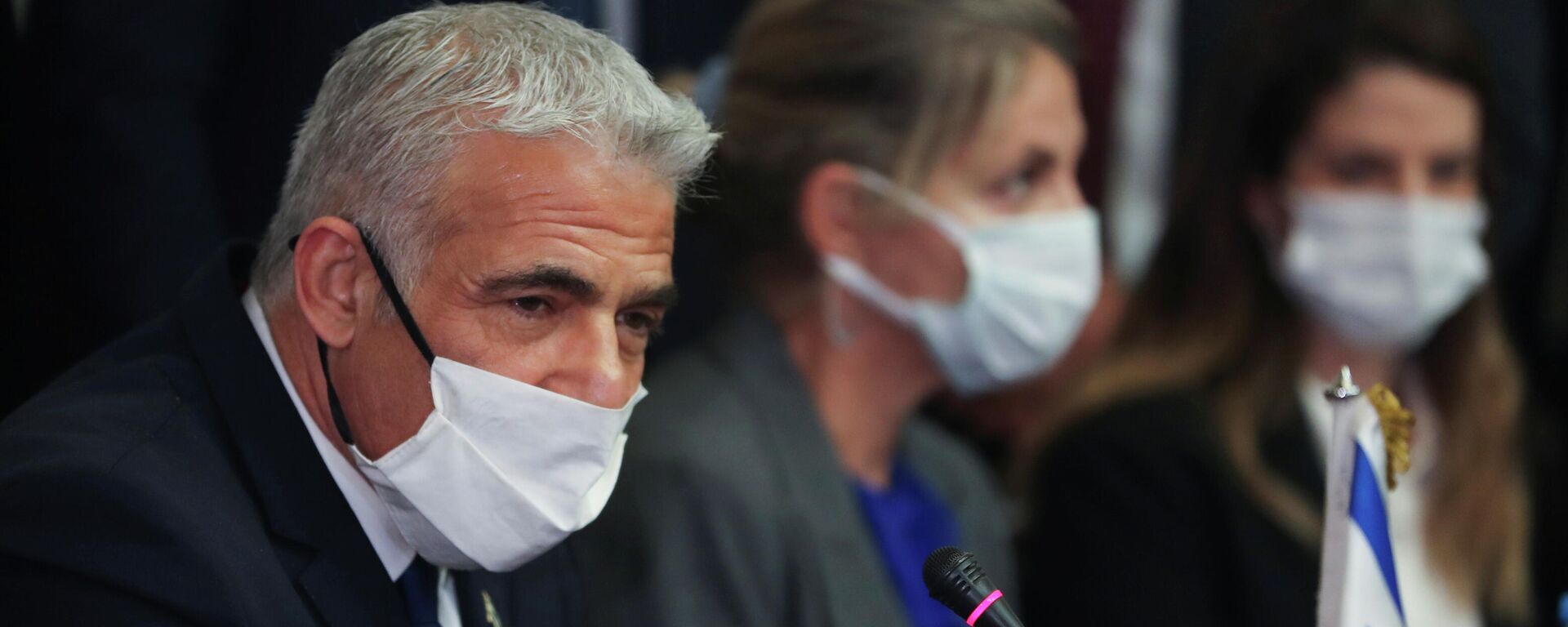
1 January 2022, 03:06 GMT
Freilich suggested that Israel’s best option would be to accept US efforts to rejoin the Joint Comprehensive Plan of Action (JCPOA) nuclear deal, calling it “the best of the bad options” for Tel Aviv. It “would be nice” for the agreement to include things besides nuclear enrichment, he said, such as Iran’s missile capabilities or its regional policy.
“But I think the harsh reality is that’s not gonna happen, and holding out for the perfect [option] is going to be the enemy here of the good, even the acceptable. I think we’re gonna have to back off those demands, I think it’s going to be very hard to get back to any agreement,” he said.
“You have to take into account that any deal that the US and Israel consider to be a better one, the Iranians by definition consider to be a worse one. And why would they possibly want to agree to a worse deal when they were observing the old one – it was the US that pulled out without any substantive justification. You can say it was a bad deal that never should have been signed, but the fact that it was and the Iranians were observing it …The American withdrawal strengthened the hands of the hardliners in Iran - so to speak, proved them correct … Well these people are now in power, and they are very suspicious of the US, even more so than their predecessors. They also believe they’ve found a way to withstand American and western sanctions, partly because Iran built the so-called ‘resistance economy’ – basically a semi-autarkic economy - [and] partly because China has become their alternative to ties with the West,” Freilich stressed.
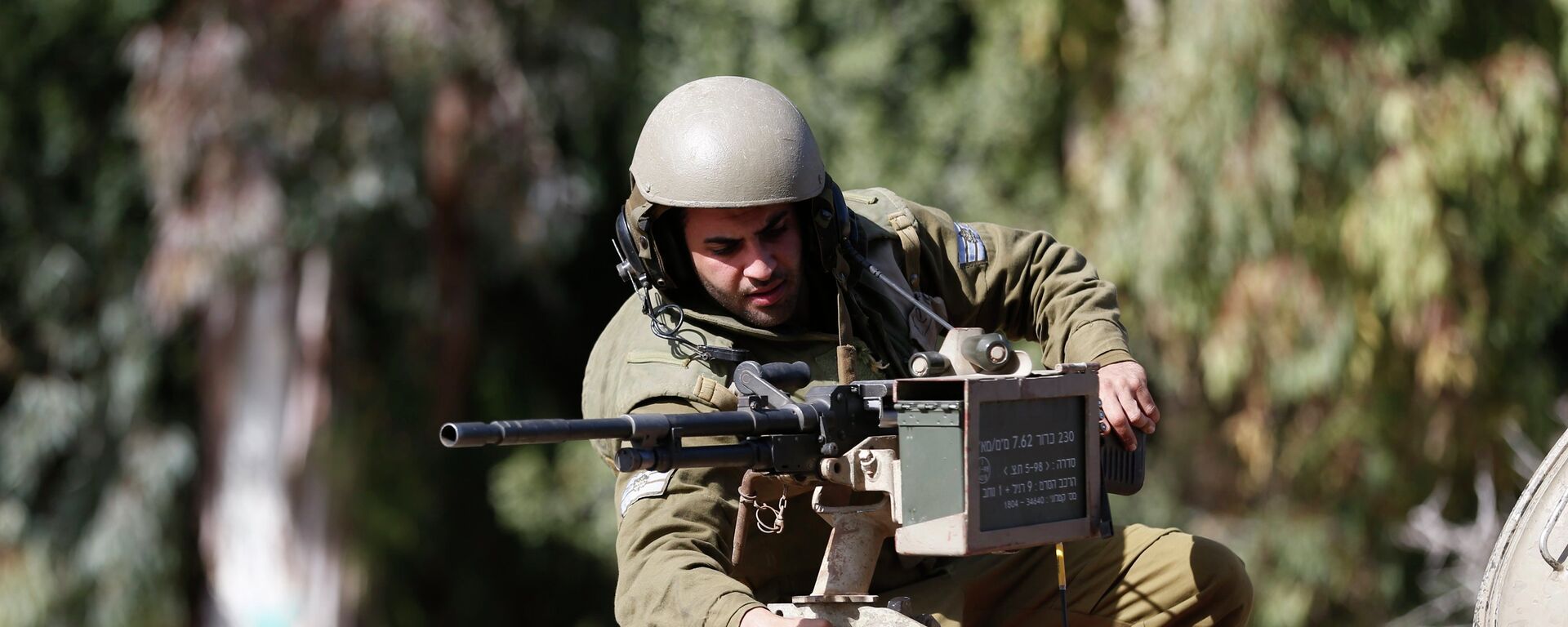
21 December 2021, 09:53 GMT
Israel has spent years threatening to wipe out Iran’s nuclear programme, and has been accused of carrying out numerous sabotage attacks against the country’s nuclear facilities, and assassinating half-a-dozen of the Islamic Republic’s nuclear scientists. In October, the Israeli government carved out a special
$1.5 billion budget specially for aircraft, drones and special munitions to attack Iranian nuclear facilities.
Tehran has warned that any Israeli or American military attack on its soil would be met with a fiery retaliation. Last month, Iranian missiles and drones destroyed a mock-up of a facility resembling Israel’s main nuclear research centre during massive drills. Over the past three decades, the Islamic Republic has developed and fielded
thousands of domestically made short, medium and long-range ballistic and cruise missiles, as well as drones, with many of these weapons theoretically capable of reaching Israeli soil.
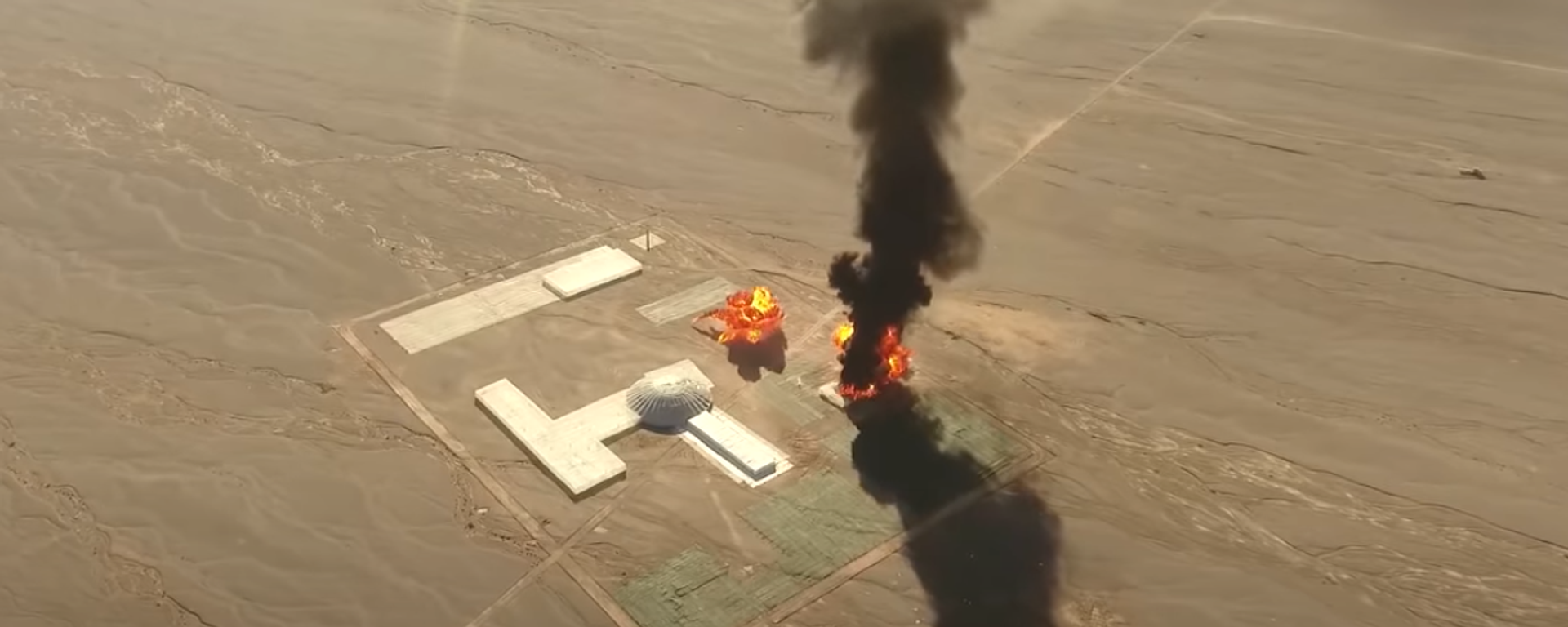
26 December 2021, 15:40 GMT
Iran’s leaders have said repeatedly that they have no intention of pursuing nuclear weapons, considering nukes and weapons of mass destruction to be contrary to Islamic law and that their conventional missile arsenal is a sufficient deterrent.
Iran, the United States, Russia, China, France, Britain, Germany and the European Union have been negotiating the restoration of the JCPOA at talks in Vienna. Iran wants the US to lift its crushing sanctions, and has rejected any attempts to modify the existing deal. Washington suggests Tehran must first return to its original commitments under the agreement on uranium enrichment and stockpiling.
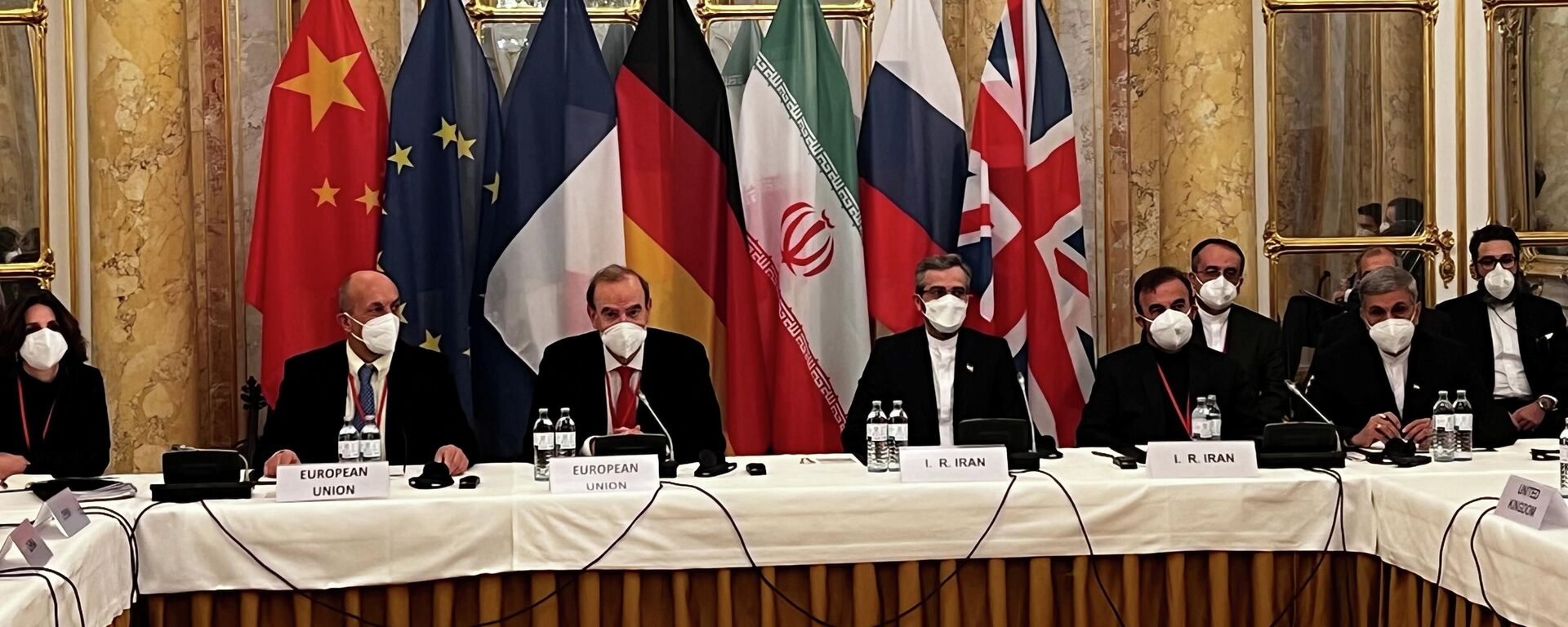
30 December 2021, 20:17 GMT
